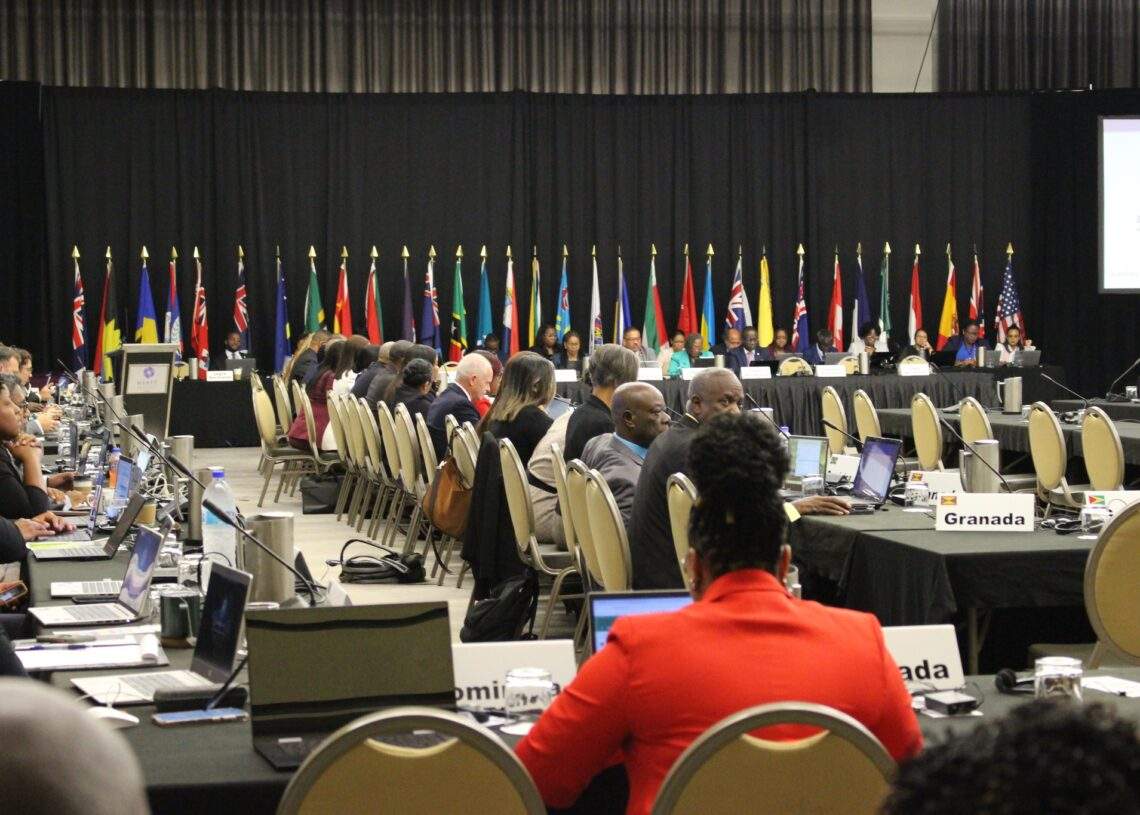COPOLAD III has participated this week in the 59th Plenary of the Caribbean Financial Action Task Force (CFATF/ CFATF) in Negril (Jamaica). During this meeting, the technical guide for all CFATF/ CFATF member countries was approved: ‘Investigations on crypto-assets’, presented by COPOLAD consultant Federico Paesano.
This guide to crypto-asset investigations focuses on the emerging money laundering risks associated with drug trafficking crime through the use of virtual assets and virtual asset service providers, methods of investigating such crimes and methods of confiscating them.
In addition, the handbook includes recommendations, strategies and good practices to address the misuse of cryptoassets to prevent the exploitation of digital currencies for criminal purposes, including the creation, concealment and laundering of illegal funds. Once adopted, the Guide will be available to all CFATF/FATF member countries.
A joint commitment
Through the Memorandum of Understanding between COPOLAD and CFATF/FATF/ CFATF both entities committed in September 2023 to work together on:
- Strengthening the exchange of information between Latin America and the Caribbean and European countries on financial and property investigations linked to drug trafficking offences.
- Improving the capacities of analysts and public officials in charge of money laundering investigations.
- The adoption by CFATF/FATF member countries of standards, procedures and regulations to strengthen the capacity to investigate money laundering offences and to identify and recover the proceeds of international drug trafficking.
In addition, the COPOLAD III team will present a new working initiative between GAFILAT and COPOLAD III in Paraguay from 9 to 13 December at the plenary meeting of representatives of the Latin American Financial Action Task Force (GAFILAT). The objective of this joint initiative is to analyse the different resources and needs of the 18 countries that make up GAFILAT in order to make recommendations to help strengthen asset recovery systems. In addition, it is expected to identify regional best practices in relation to the management of confiscated assets and their appropriate disposal and destination, including social use.
The document will contribute to the improvement of the systems of recovery and management of assets confiscated from organised crime in the countries of the region, and their preparation for the fifth round of Mutual Evaluations of GAFILAT, which will begin in 2025 and which aims to review the systems and mechanisms that have been created in each member country for the prevention and combating of money laundering and terrorist financing.
Both CFATF/GAFIC (in the Caribbean) and GAFILAT (in Latin America) are organisations made up of the majority of countries in the region that have agreed to implement common countermeasures to address the problem of money laundering by organised crime.






